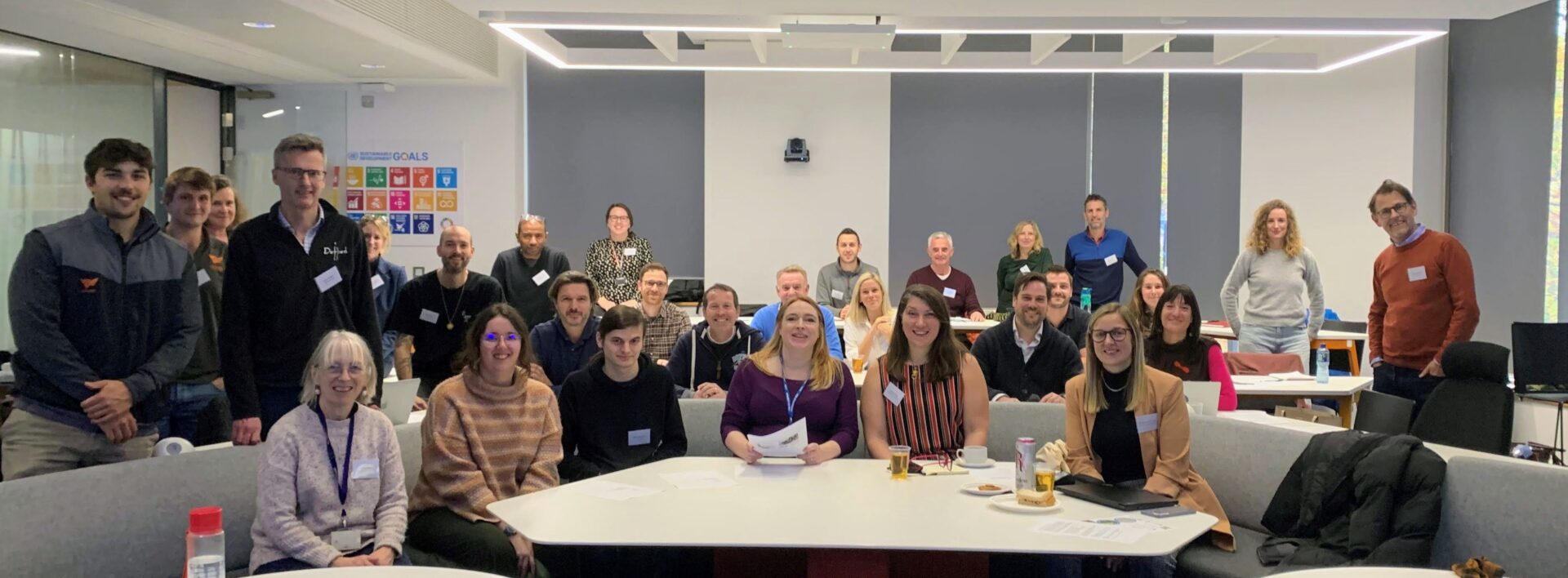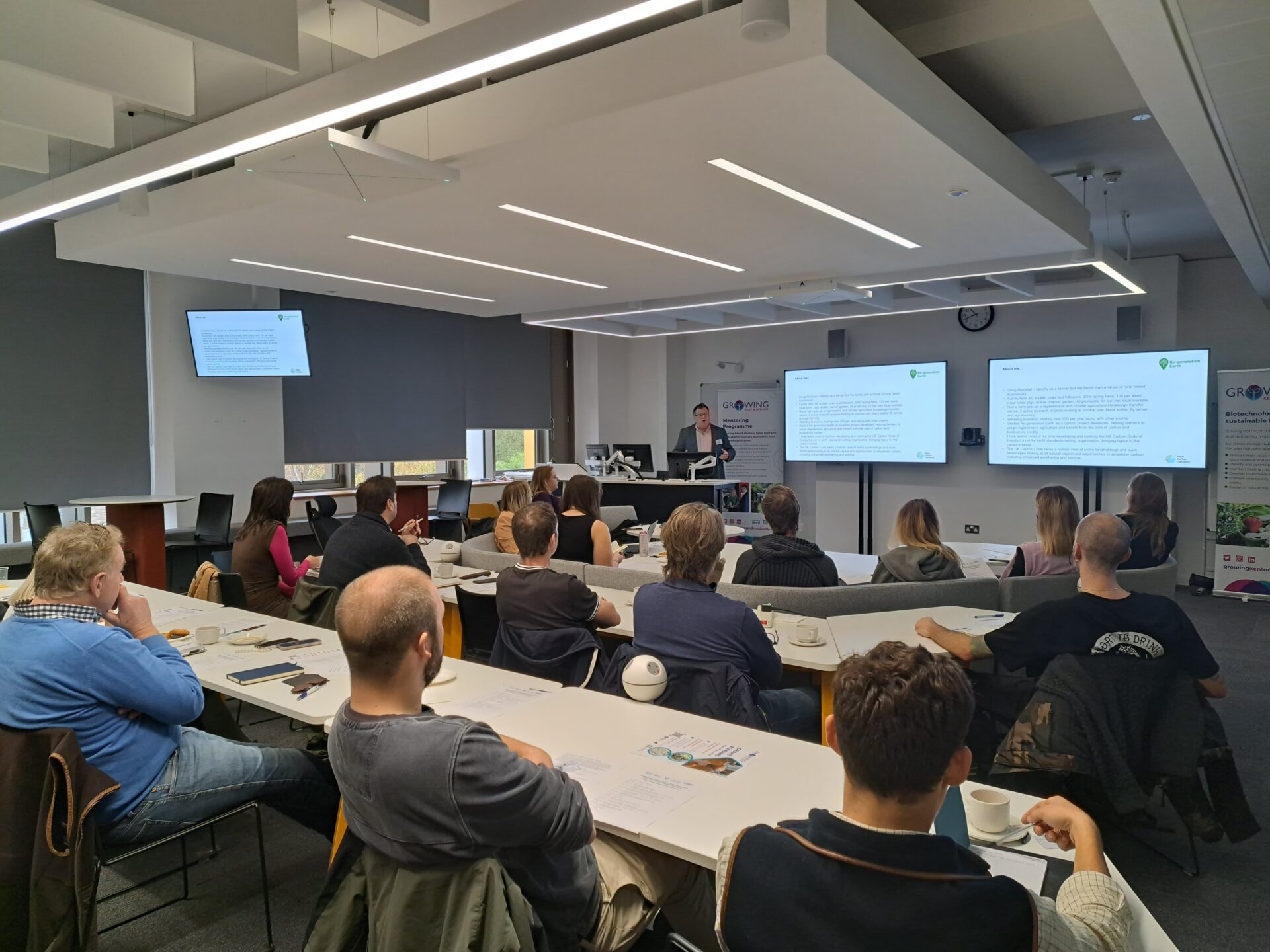Leading researchers in the field of regenerative viticulture met with viticulturists and wine makers for a research and development day hosted at the University of Kent.
The day brought together scientists from the University’s Biosciences with a variety of stakeholders from the UK wine industry and focussed on the journey to regenerative growing and more sustainable production.
Speakers came from the Natural Resources Institute at the University of Greenwich, Canterbury Christchurch University, the Royal Agricultural University and the University of Kent, as well as industry including Re-Generation Earth, Trinity Agtech, and The Regenerative Viticulture Foundation.
The day was organised by Dr Lori Fisher from the University of Kent. She spoke about the importance of the UK’s wine industry to the economy, adding: “The overall revenue of the UK wine market following covid is showing signs of recovery and is predicted to return to 2018 levels (£19.49 billion) by 2025 but to do this the sector requires support to strengthen its unique selling points.
“With the recent change in the age demographic drinking wine, and a stronger emphasis on wines making using regenerative or sustainable packaging, the University of Kent, is working with peers at Christchurch Canterbury University, the University of Greenwich’s Natural Resources Institute, and the Royal Agricultural University to develop research projects and programmes designed to support British wine as a renowned leader in sustainable wine production.”



